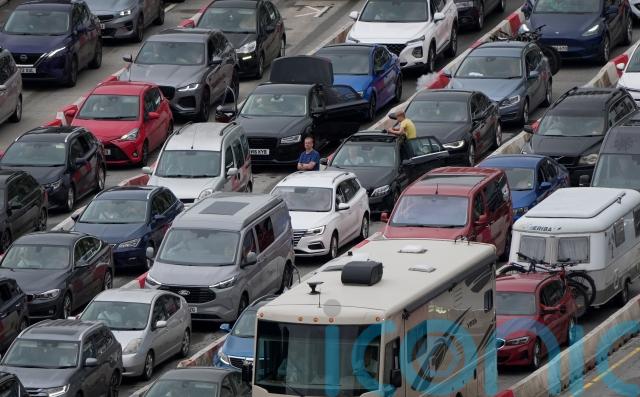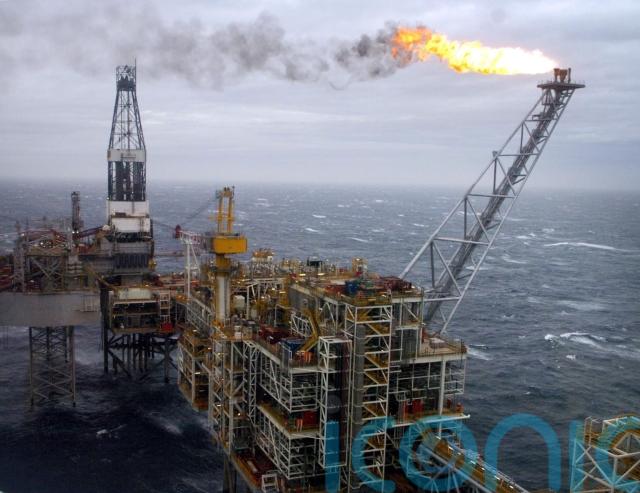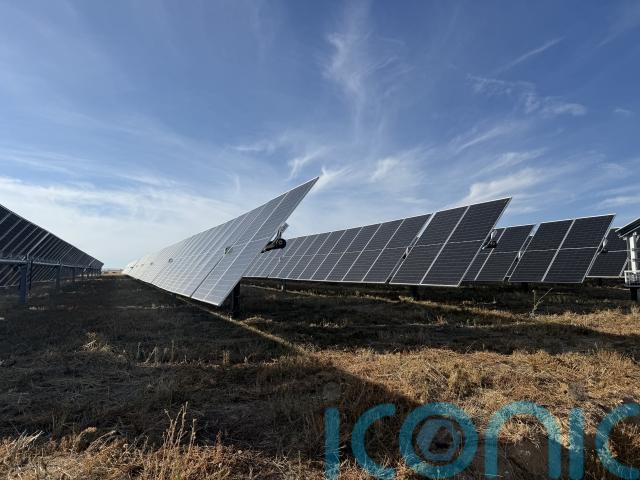
Predicted global temperature rise this century has fallen slightly to 2.8C under current policies, UN experts said as they warned that the world was still heading for a serious escalation in impacts.
In its annual report on the gap between the emissions cuts needed to limit dangerous global warming to 1.5C and what countries were doing and had pledged to do, the UN Environment Programme (UNEP) said progress was “nowhere near fast enough”.
The world was facing long-term global warming of 2.8C on current policies, compared to 3.1C last year, the report said.
And even if countries delivered on promised action, it would lead to temperature rises of 2.3C to 2.5C, it reported.

While these predictions were down slightly from last year’s figures, UNEP said methodological updates to its assessment accounted for some of the decline.
It also said the upcoming withdrawal of the US from the Paris Agreement would cancel out some of the progress, meaning the world had barely moved the needle in terms of ambition.
The warning comes ahead of this year’s UN Cop30 talks in the city of Belem in Brazil’s Amazon, where nations will focus on boosting implementation efforts in the face of growing geopolitical division over climate action.
At the Paris climate talks in 2015, countries agreed to limit temperature rises to “well below” 2C and pursue efforts to curb them to 1.5C above pre-industrial levels.
Scientists have warned there is no safe amount of climate change, but 1.5C has come to be seen as a threshold beyond which the worst impacts of climate change-driven heatwaves, droughts, floods, collapse of natural systems and rising sea levels will be felt.
Nations have set out country-level action plans, known as nationally determined contributions (NDCs), for meeting the Paris targets, through cutting emissions from activities such as burning fossil fuels and creating or restoring habitats such as forests to capture carbon.
Governments were supposed to submit updated NDCs covering emissions cuts for the 2025-2035 period by September 30.
But less than a third had put forward their updated plans so far, UNEP said, meaning the majority had missed the deadline, which had already been extended from February.
Meanwhile, countries were off-track even for their older 2030 NDCs, let alone new 2035 targets, it said.
As world leaders prepared to gather for the UN climate summit in the coming days, the UN agency was warning that the long-term average of global temperature rise would exceed 1.5C, at least temporarily, and likely this decade.
The report said global greenhouse gases were still rising, and were up 2.3% in 2024 on 2023 levels, with the G20 group of leading economies accounting for more than three-quarters (77%) of emissions.

Emissions in 2035 would now have to fall 35% from 2019 levels to limit warming to 2C, and 55% for 1.5C, it said.
But under the latest NDCs, expected global emissions would fall by about 15% compared to 2019.
Inger Andersen, executive director of UNEP, said: “Nations have had three attempts to deliver promises made under the Paris Agreement, and each time they have landed off target.
“While national climate plans have delivered some progress, it is nowhere near fast enough, which is why we still need unprecedented emissions cuts in an increasingly tight window, with an increasingly challenging geopolitical backdrop.
“But it is still possible – just.”
Mr Andersen said proven solutions to tackle the climate crisis already existed, from the rapid growth in cheap, renewable energy, to cutting methane emissions as an “emergency brake” on current warming.

“Now is the time for countries to go all in and invest in their future with ambitious climate action – action that delivers faster economic growth, better human health, more jobs, energy security and resilience,” he said.
UNEP also highlighted that every fraction of a degree avoided reduced an escalation of the impacts that were harming all nations – while hitting the poorest and most vulnerable the hardest.
Since the adoption of the Paris Agreement 10 years ago, temperature predictions have fallen from 3C to 3.5C warming, with wind and solar energy developments surging across the world at lower costs.
But in order to accelerate the green transition, countries would need to navigate the challenging geopolitical environment, as well as increase support to developing countries and redesign the international financial architecture as they headed into Cop30, UNEP said.
Subscribe or register today to discover more from DonegalLive.ie
Buy the e-paper of the Donegal Democrat, Donegal People's Press, Donegal Post and Inish Times here for instant access to Donegal's premier news titles.
Keep up with the latest news from Donegal with our daily newsletter featuring the most important stories of the day delivered to your inbox every evening at 5pm.